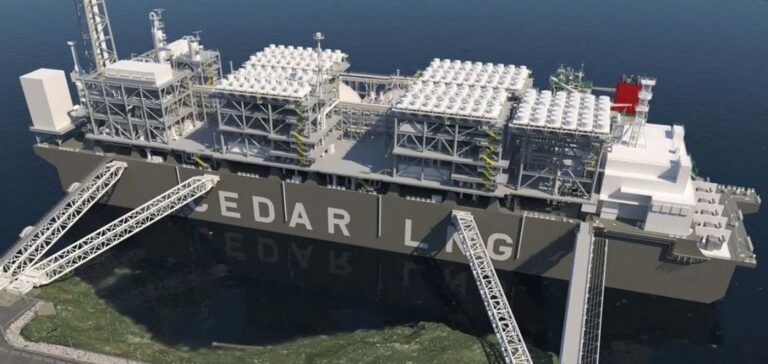The Government of Canada has announced financial support of up to CAD200mn ($147mn) for Cedar LNG Partners LP, as part of a CAD5.96bn ($4.39bn) infrastructure project. The investment, delivered through the Strategic Innovation Fund, will support the construction and operation of a floating liquefied natural gas (LNG) processing facility in Kitimat, British Columbia. The associated maritime terminal will have an annual production capacity of 3.3mn tonnes of LNG, targeting foreign export markets.
Indigenous-majority owned energy infrastructure
The project is a joint venture between the Haisla Nation, holding 50.1% of the shares, and Pembina Pipeline Corporation, with a 49.9% stake. It represents the largest Indigenous-majority owned energy infrastructure in Canada. The construction phase is expected to generate approximately 300 full-time jobs, while the operation will create 100 highly specialised positions. The project is set to contribute CAD275mn to national gross domestic product (GDP) during construction, with an additional annual CAD85mn during operations.
Hydropower-driven and export-oriented
The facility will use electricity from British Columbia’s hydroelectric grid, aiming to reduce emissions associated with gas liquefaction. It will process up to 400mn standard cubic feet of natural gas per day. The terminal will feature air-cooling technology and a unique extended catenary mooring system, innovations designed to minimise impacts on local communities and the coastal environment.
Economic and strategic objectives
Cedar LNG aligns with Canada’s strategy to diversify export markets for its natural resources sector. The project is also positioned as a tool for regional economic development. It seeks to maximise Indigenous employment and strengthen First Nations’ participation in the country’s energy development.






















